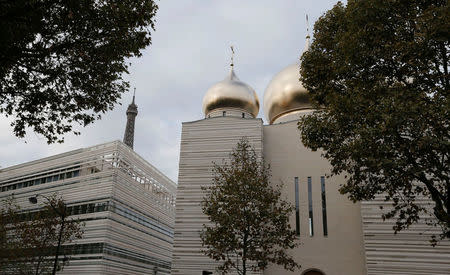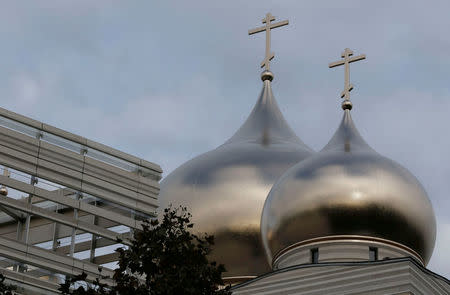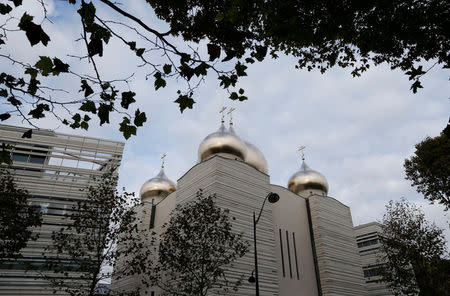Russia, brushing off diplomatic snub, inaugurates Paris cathedral
By Astrid Wendlandt PARIS (Reuters) - Russia inaugurated its most visible landmark in France on Wednesday, brushing off a diplomatic snub by Francois Hollande's government as bilateral tensions simmered over the war in Syria. The opening of the giant white stone and glass Orthodox Cathedral and cultural centre by the River Seine topped with large gilded domes and in sight of the Eiffel Tower was to have served as a set-piece foreign event for Russian President Vladimir Putin. But Putin did not attend after Hollande demanded talks on Syria that German Chancellor Angela Merkel ended up hosting later in the day in Berlin. The European Union has condemned Russia's air campaign in Syria but Germany said decisions on fresh sanctions against Russia would not be taken at a summit this week. Putin sent Culture Minister Vladimir Medinsky to Paris, who was joined at the opening ceremony by ambassador to France Alexander Orlov. No member of Hollande's government attended. "There have been highs and lows in relations between France and Russia," Orlov told Reuters TV, noting Napoleon's failed Russia campaign in the 19th century as well as French being the language of choice for Russian aristocrats for two centuries. "I am very optimistic about the future because there is great proximity between France and Russia... Russians love coming to Paris, they feel very at ease here. " The Holy Trinity Cathedral is Russia's biggest and most visible landmark in the French capital since Tsar Alexander III offered Paris a bridge named after him in the late 19th Century. The complex, which cost Russia tens of millions of euros to build on top of the estimated 70 million euros ($77 million) it spent on acquiring the plot, has diplomatic status as it hosts the embassy's cultural centre. Asked about complaints from Parisians that the complex was too big, Orlov said Russia could have built it much larger. ($1 = 0.9120 euros) (Corrects description in paragraph two) (Reporting by Astrid Wendlandt; editing by John Stonestreet)

 Yahoo News
Yahoo News 



